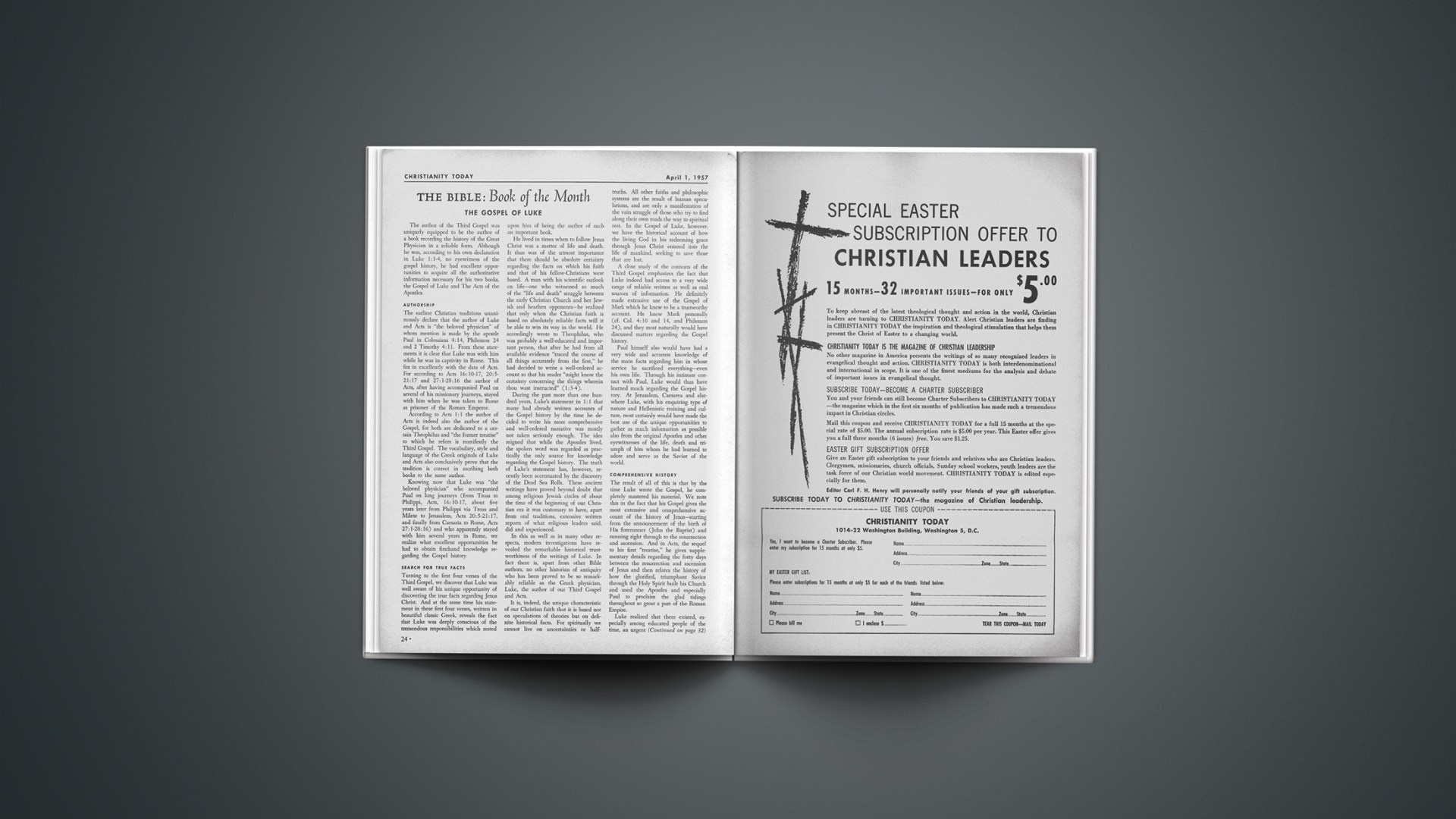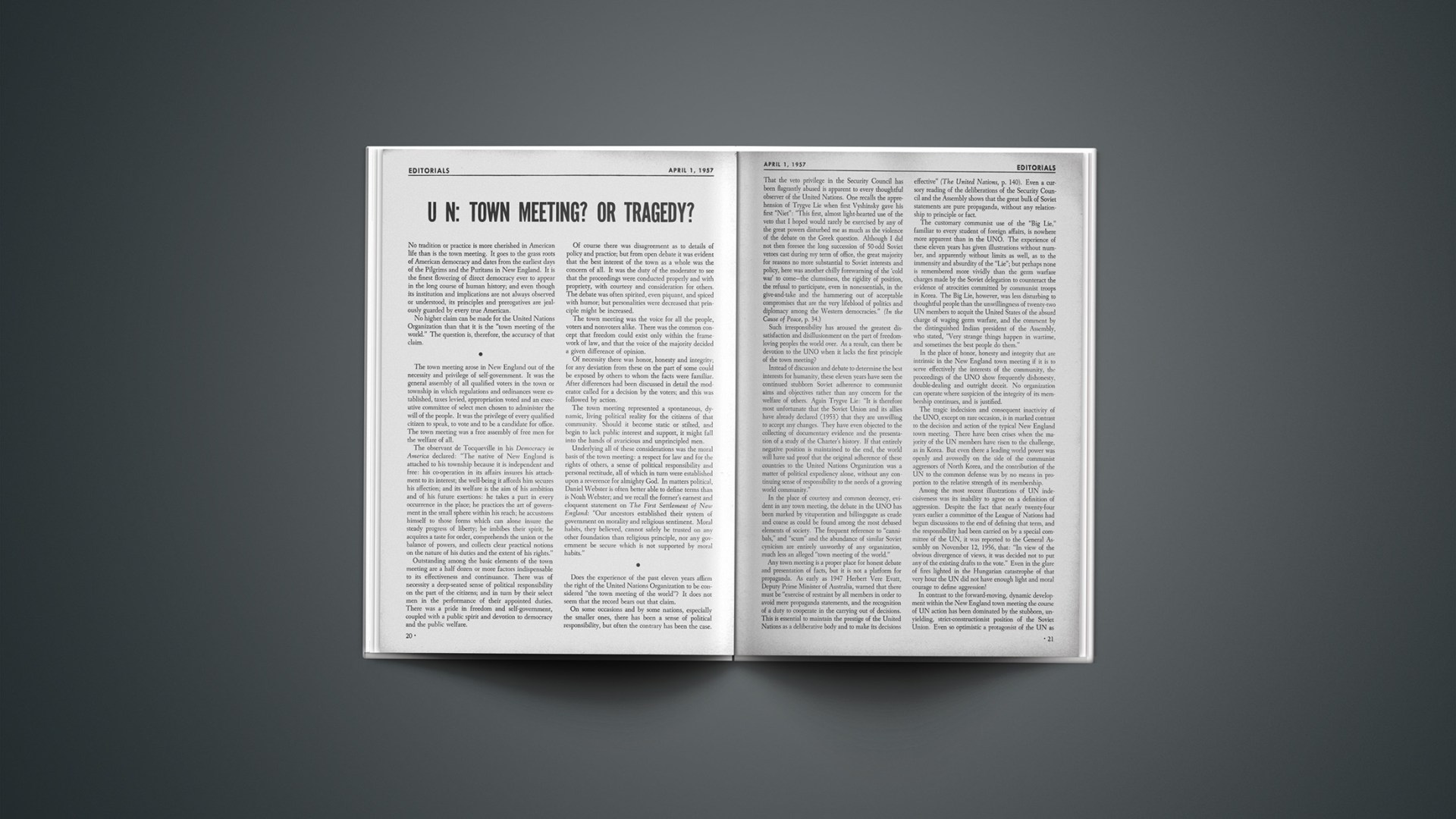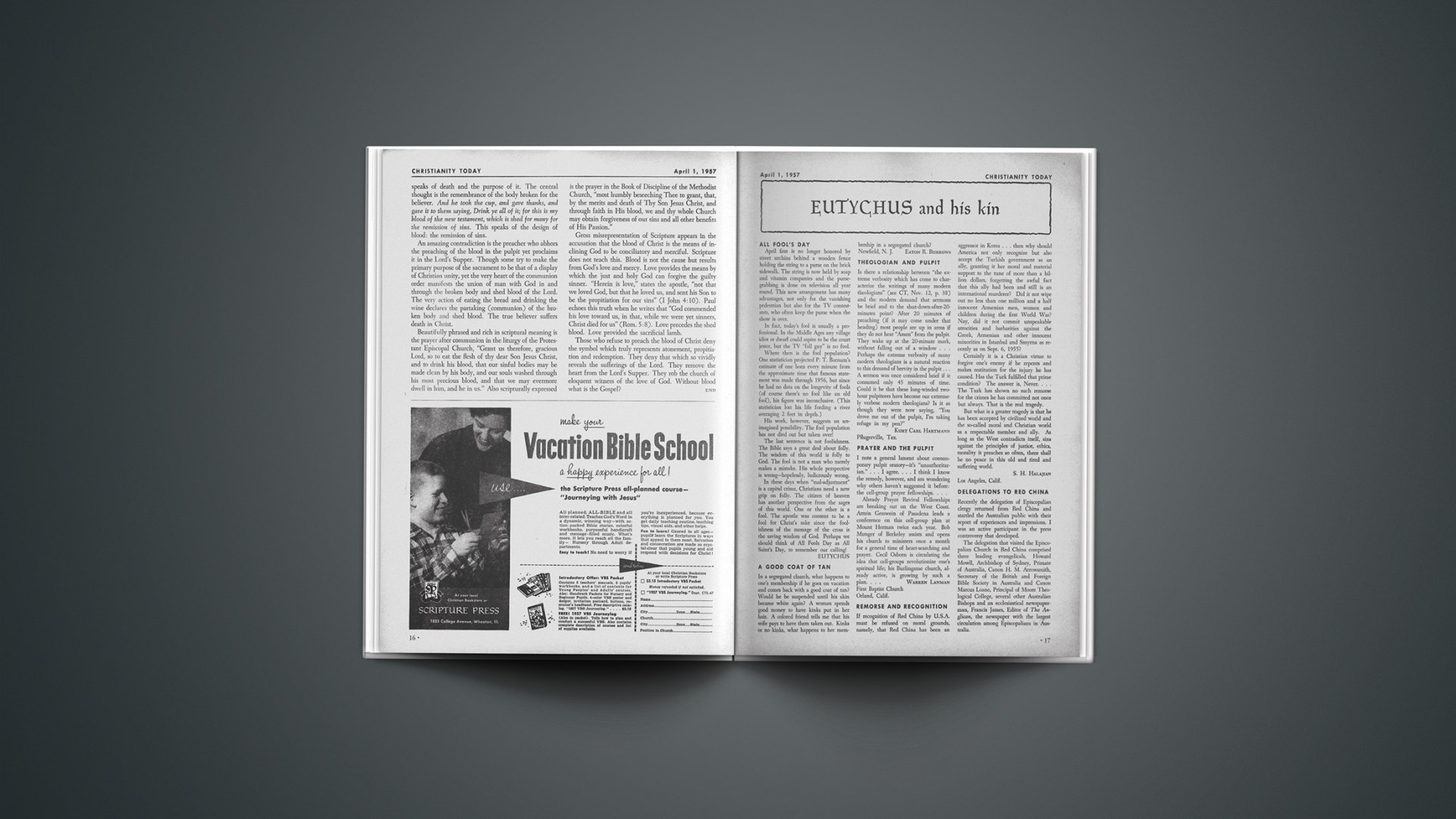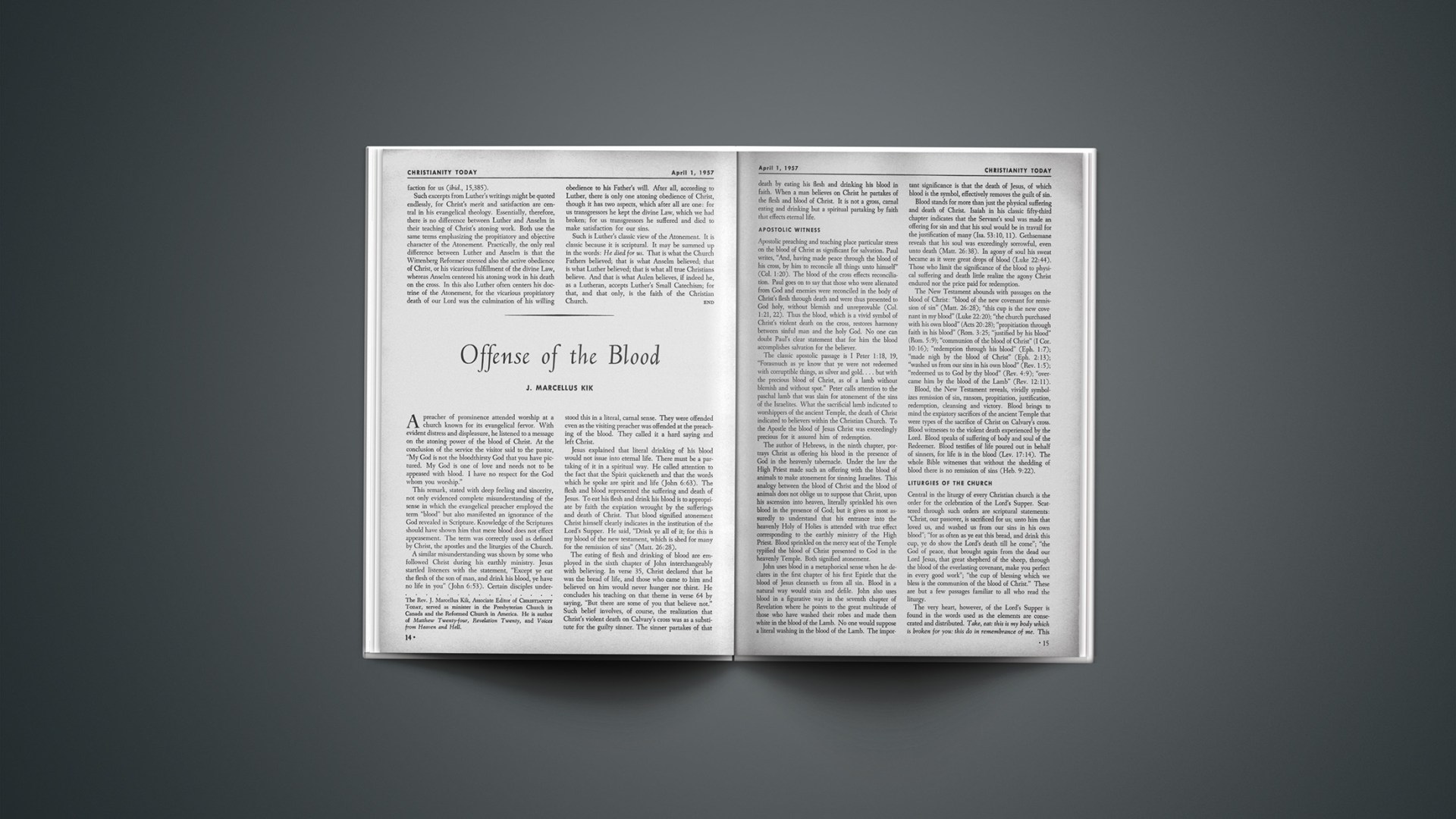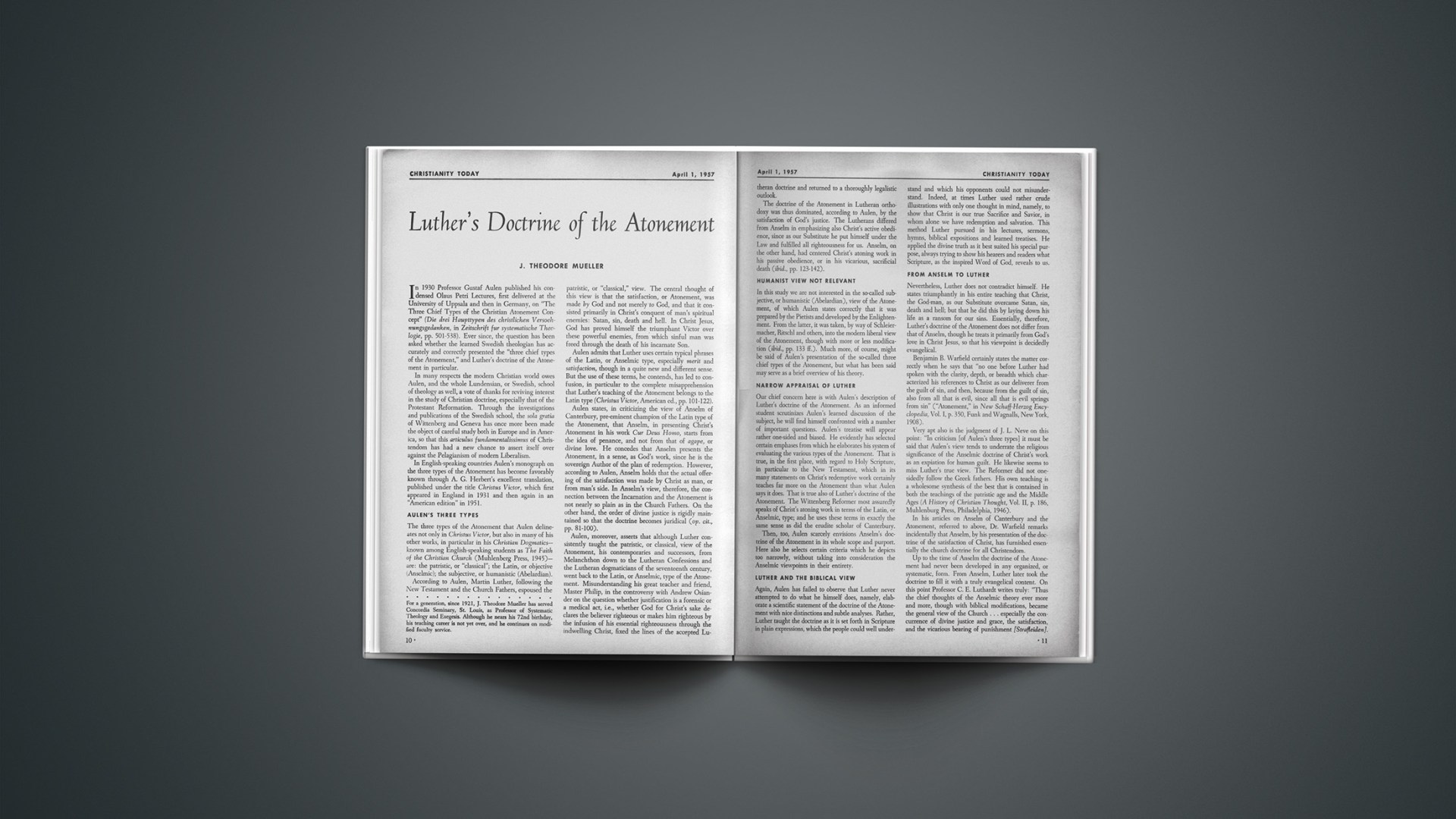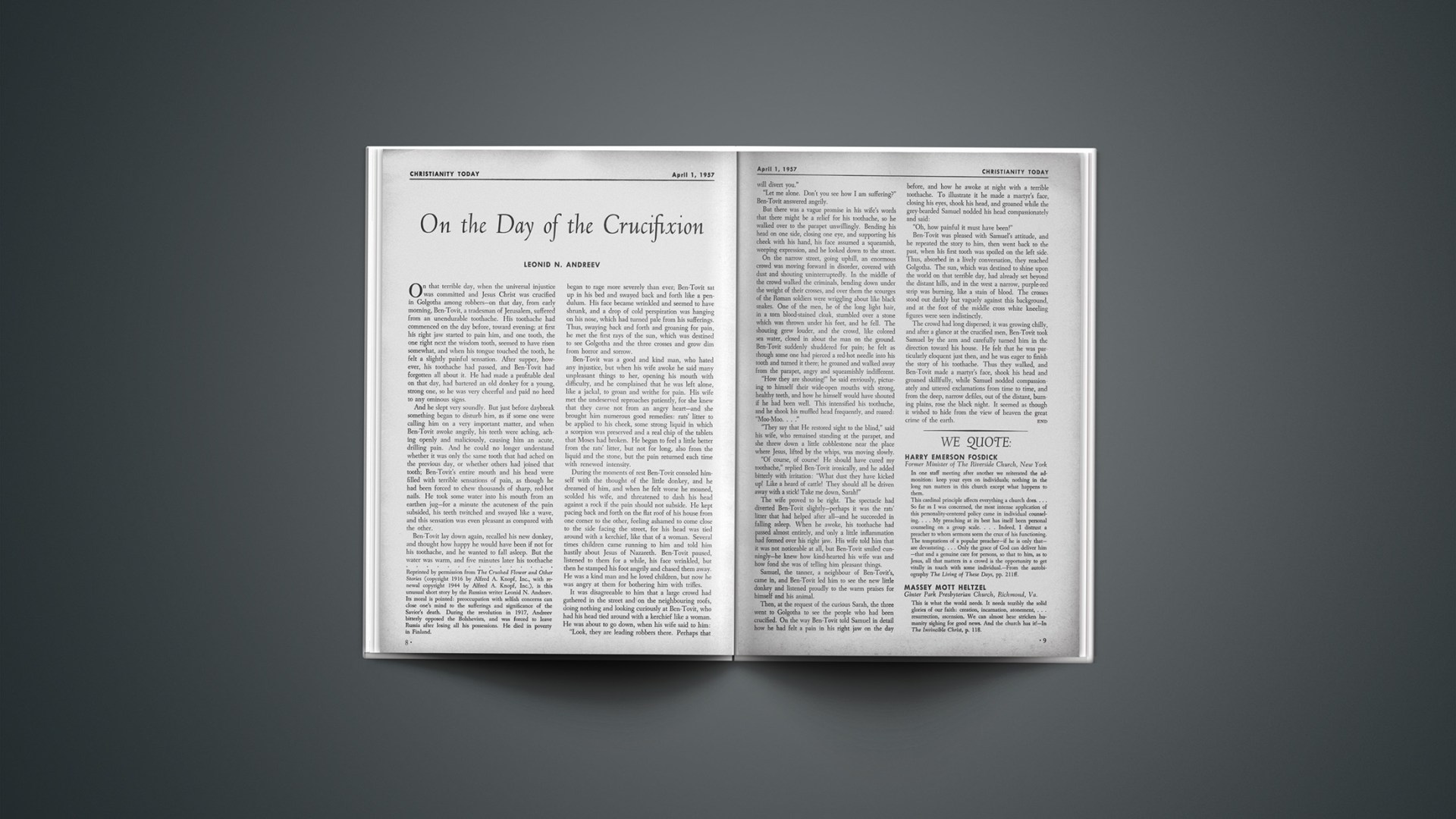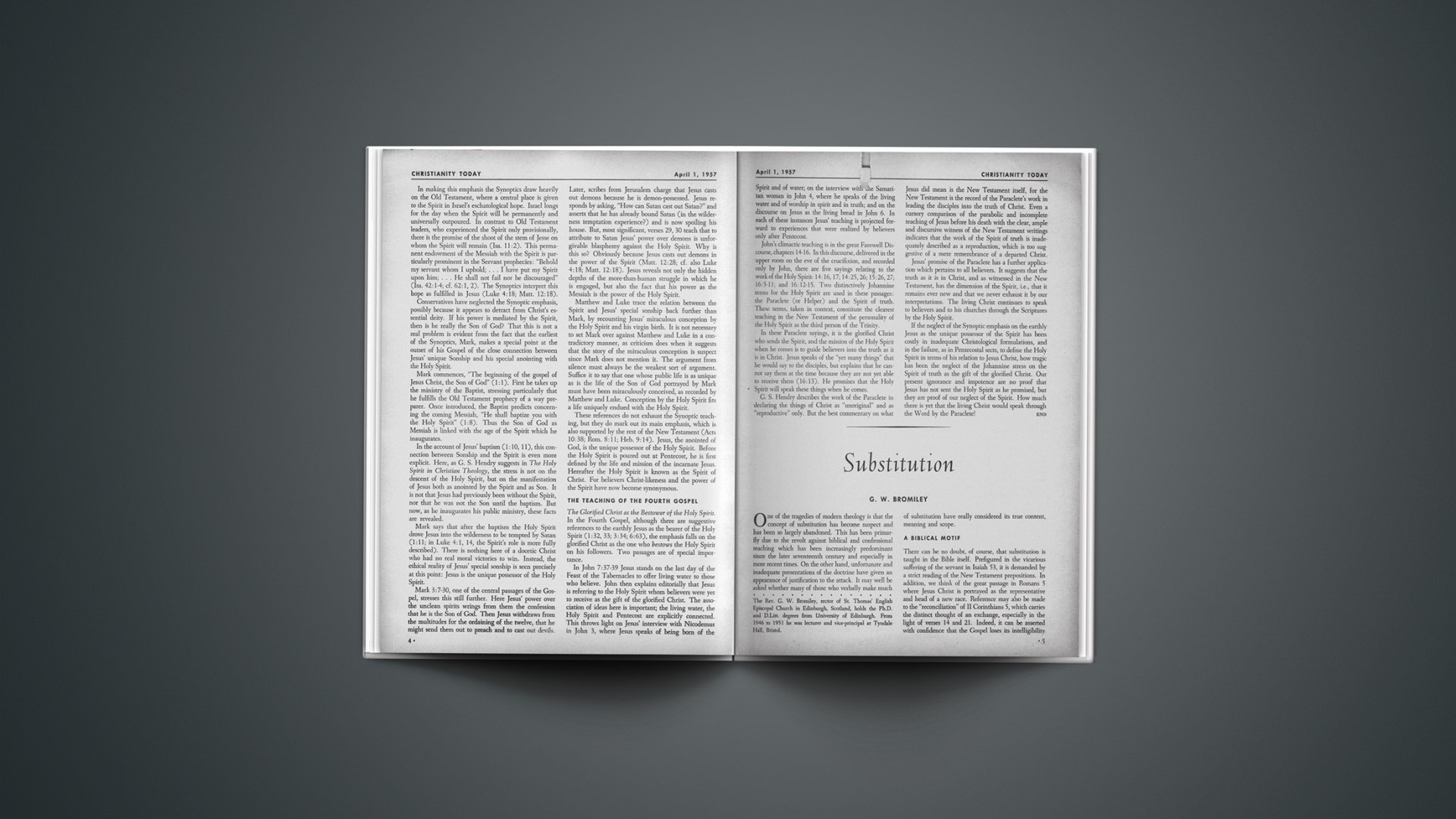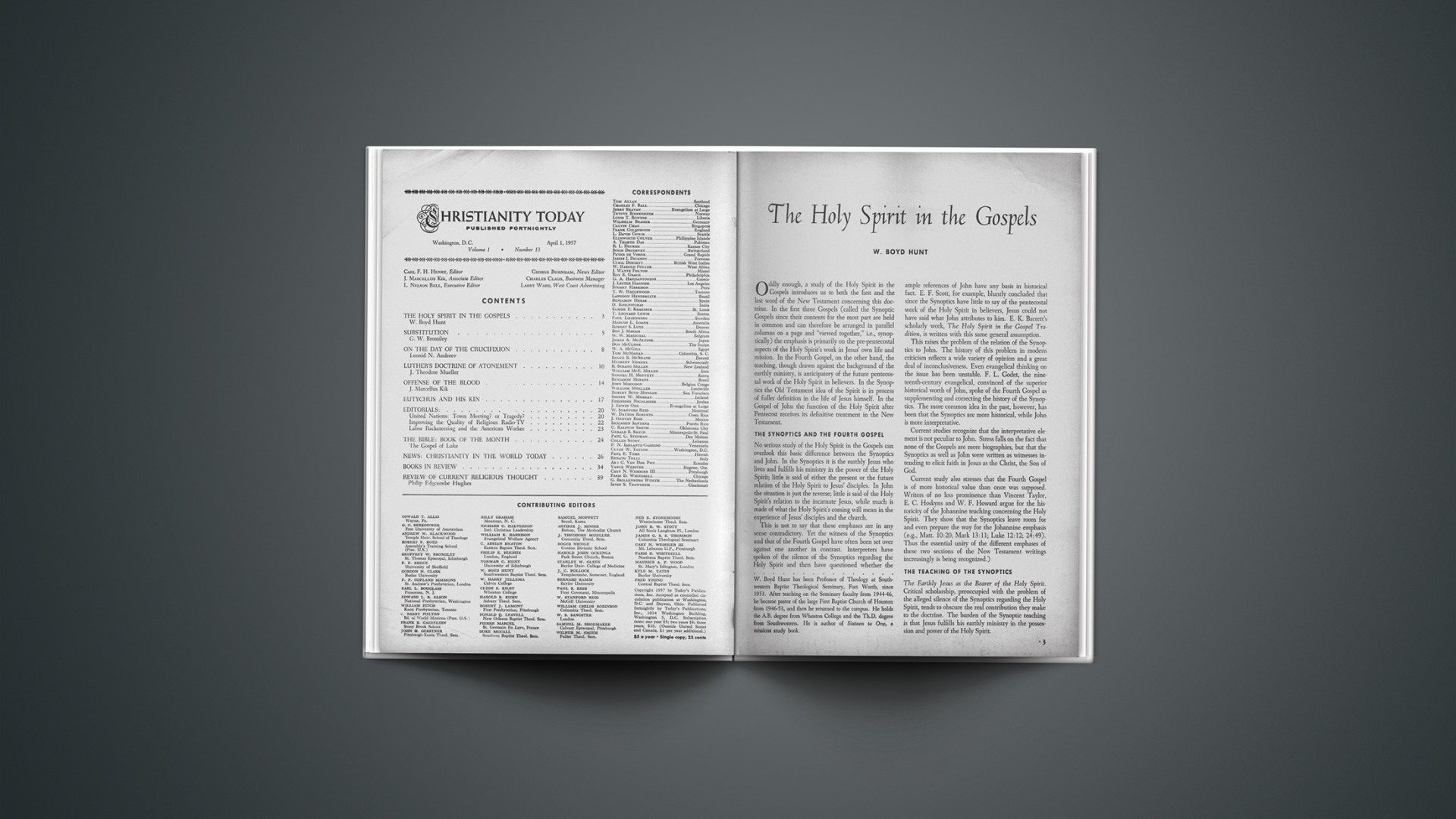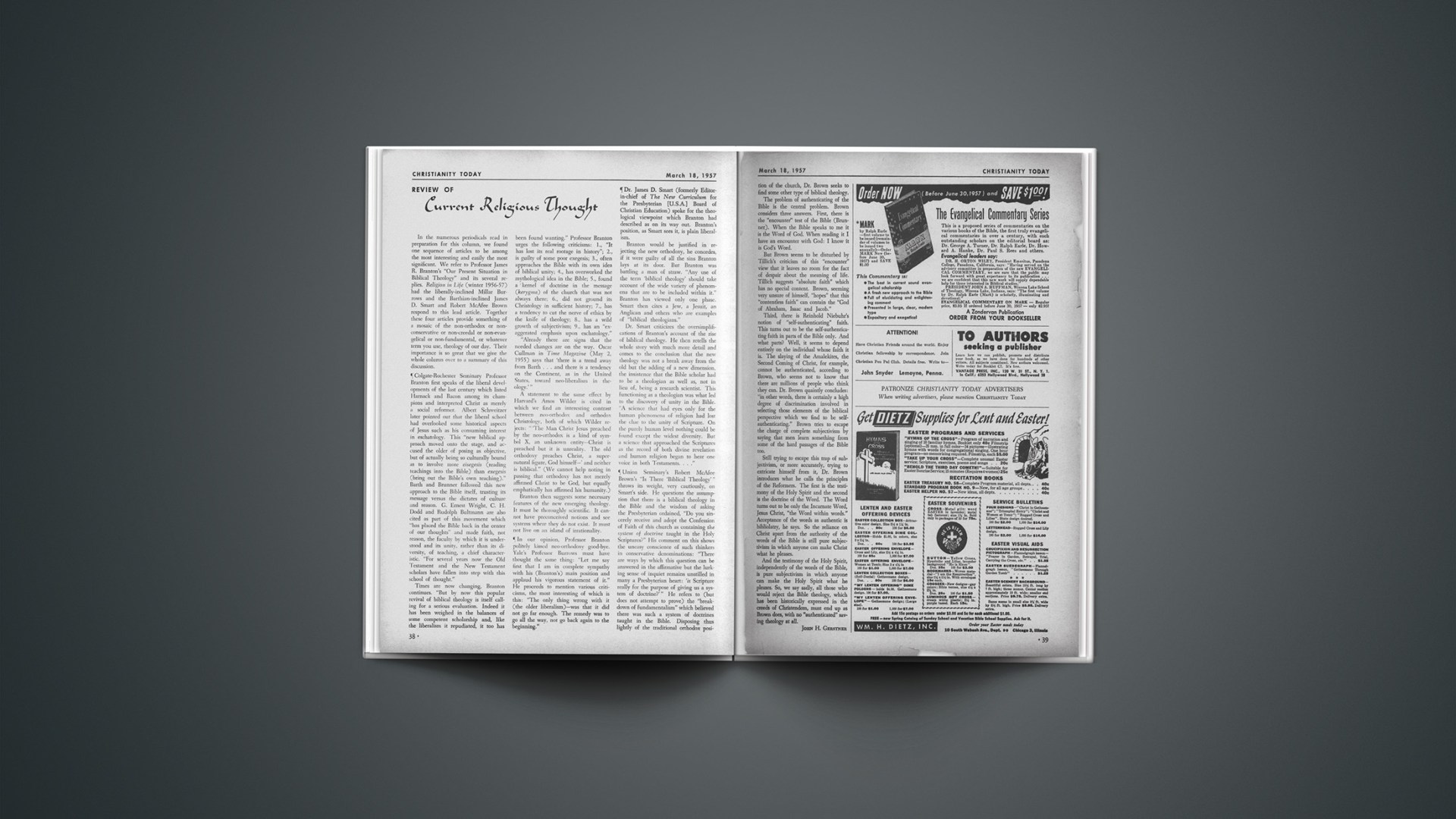Christianity in the World Today
Dr. Billy Graham, in an address prepared for delivery April 3 at the 15th annual convention of the National Association of Evangelicals in Buffalo, New York, illustrates a major point on “the lost sincere compassion for sinners” with these words:
“Where are the tears for the lost? Where is our concern for men that are confused, frustrated, lost, sinful and destined for hell? At the moment, our New York campaign has been challenged by some extremists on two points.
“First, as to its sponsorship, I would like to make myself quite clear. I intend to go anywhere, sponsored by anybody, to preach the Gospel of Christ, if there are no strings attached to my message. I am sponsored by civic clubs, universities, ministerial associations and councils of churches all over the world. I intend to continue. Not one person in New York has even suggested or hinted as to what my message should be. It will be precisely the same message that I have preached all over the world. The centrality of my message will be Christ and Him crucified.
“Second, we have been challenged on what happens to the converts when the crusade is over. Apparently these brethren who make these statements have no faith in the Holy Spirit. The work of regeneration is the work of the Holy Spirit. The work of follow up is the work of the Holy Spirit. The same Holy Spirit that convicted them of sin and regenerated them is able to follow them. No group of ministers in any large city anywhere in the world agree on what constitutes a sound church. We do all we can in follow up, but ultimately they’re in the hands of the Holy Spirit. He is more than able. We have overwhelming evidence of how miraculously the Holy Spirit has led thousands who have come forward in the meetings to surrender their hearts to Christ.”
Other key points of Dr. Graham’s address, entitled “The Lost Chord of Evangelism,” are as follows:
“The lost sensibility to the majesty of God.
“We handle holy things too glibly and professionally. We need to sense the majesty and holiness of God, as did Isaiah, Moses and Daniel. If we could get a glimpse of God today we would fall on our faces, as did Peter, James and John at the transfiguration and as Paul did on the Damascus Road.
“The lost sense of God’s presence.
“Samson ‘wist not’ that the Lord had departed from him. Many of us have lost the sense of God’s presence and anointing. We no longer minister in the powers of the Holy Spirit. Our message has lost that certain something that is necessary for spiritual power.
“The lost sensitivity to personal ethics.
“The Christian should be the most ethical person in our society. His income tax returns should be the most honest. The Christian minister should lean over backwards in his honesty, truthfulness and personal decorum. In the complexities of the present-day world, it is easy to get careless.
“The lost simplicity of our love one to another.
“The one badge of Christian discipleship is not orthodoxy, but love. There is far more emphasis on love and unity among God’s people in the New Testament than there is on orthodoxy, as important as it is.
“The lost significance of the scope of the Church.
“We evangelicals sometimes set ourselves up as judges of another man’s relationship to God. We often think that a person is not a Christian unless he pronounces our shibboleths and cliches exactly the way we do. I have found born again Christians in the strangest places, under the oddest circumstances, who do not know our particular evangelical language. But their spirit witnesses to my spirit that they are truly sons of God. There is a great swing all over the world, within the Church, toward a more conservative theological position. The old terms, fundamentalism and liberalism, are now passe. The situation has radically changed, since the days of Machen, Riley and other defenders of the faith a generation ago.
“The lost separation from the world.
“There is danger among evangelicals of compromising with the mode of the day. The lines of separation from the world are no longer drawn. Our attitudes are becoming infected with the spirit of the times. We are in danger of surrendering to false standards. While we must not be legalistic, we must be separated from the world. Worldliness is not a few designated things, such as dancing, movies and drinking, but is a spirit that is invading our homes and our lives today through many other mediums. We need to issue a new call for separation, not only from the world, but unto God.”
The NAE, representing over 40 denominations and associations, announced plans for a united prayer effort on the evening of April 3 in behalf of Dr. Graham’s New York crusade. Cards displayed at the convention, state by state, carried the pledges of scores of churches to unite their midweek prayer services with the concentrated effort. The prayer session at Buffalo is to last through midnight.
“Demonstrating Oneness in Christ” was the tide of another major convention address, prepared for delivery by Dr. Paul P. Petticord, president of Western Evangelical Seminary, Portland, Oregon, and president of NAE.
Highlights are as follows:
“Evangelicals demonstrate oneness in Christ.
“In this our day we have on the one hand the martyrs who cannot compromise the evangelical Christian doctrine and on the other those who liberalize Christian truth by rationalizing themselves into a philosophical position that says, ‘I must retain my existence, regardless,’ or ‘I am better alive than dead.’
This sounds logical but it does not come from the lips of evangelical Christians … Since when are we so valuable to this modern generation that the entire Christian philosophy should be reversed from ‘He that loseth his life for my sake shall find it’ to ‘I shall gain my life through expediency’?
“Evangelicals lift a voice against this type of thinking which depends upon temporal values and social recognition rather than the security of the cross. They are very much aware that this type of philosophy had crept into the church, especially among the ministry, until one might say that one of the chief motives of the modern minister is ‘to get along.’ I call this ‘the sin of expediency.’ Rather than to insist upon a minister being called to deliver God’s message in judgment as well as love, mercy and peace, many ministers feel it is more important to preach only the ethical idealisms and to leave out the most important part of the Gospel, the plan of redemption. Kindred to this position is the attitude that a minister must not make negative statements concerning the basic sinful nature of man. To this, evangelicals must say that one must discern the evils of the day and follow the instruction of the Scriptures to call men to repentance and to warn them of the results of sin and the judgment of God.
“Evangelicals demonstrate oneness in organizational cooperation.
“To be a crusading movement means that evangelicals must have not only a spirit of discernment but also a vision of what God would have his children do in facing the evils of the day. Now this necessitates a struggle against certain forces that would oppose the message of evangelical Christianity. It is because of this opposition that evangelicals are sometimes labeled as divisive, intolerant conservatives. I think any student of the Scripture is convinced that Christ had many who opposed him because he discerned the evils of his day and was willing to lift his voice against sin and unbelief in a positive presentment of himself as the only Saviour who could free men from sin. The evangelical testimony has this same type of witness. It is not belligerent, caustic, arrogant or pretentious, but it is an expression of deepest sincerity.
“Evangelicals demonstrate ecumenicity.
“Wherever the unification of peoples has been imposed under terms of force or regimentation, culturally, politically, socially, educationally, morally or religiously, great new rifts soon open where least expected, dividing along natural ‘fault’ lines. The infinite variety of differences in man seems to challenge conformity. Yet the ideal of achieving the proper relationship of the many into a unified endeavor continues to challenge men everywhere. However, there is a Divine plan. We believe in the spiritual unity of believers in our Lord Jesus Christ.…
“In the doctrinal Lordship of Christ is the only true ecumenicity. It means first, a spiritual Kingdom or society, uniting ‘in one Spirit,’ every ‘born again’ person everywhere. But it means also a living expression of ‘love to God’ which is ‘loving others as oneself.’ A Christian is vitally concerned about and interested in the spiritual and social well-being of his fellow man. It is ever his passionate desire to make available to all people the blessing he himself enjoys in Christ. Wherever men have become Christians, the darkness and oppression of sin and greed have been lifted.
“Evangelical oneness, which is Christ’s kingdom, is a morally transformed body of individuals, each one of whom has experienced, in himself, the life of Christ. Evangelicals unite their strength to live out the principles of Christ, its Lord, in the midst of daily life. This is the demonstration of evangelical ecumenicity.
“Evangelicals demonstrate oneness in purpose.
“The evangelical Christian gives more than mental assent to truth and he is one who refuses to ameliorate or compromise by administrative or ecclesiastical manifestation the clear witness concerning salvation in Christ.… The chief purpose of the evangelical is to spread the message of redemption from sin through Christ. Because of this fact, convinced evangelicals are bound to go into all the world and preach the Gospel.”
Dr. Petticord said evangelical Christianity, as a crusading movement, should have an outreach for the immediate future in a united purpose of successful witness in the following seven fields of service ministry:
(1) A ministry of encouraging evangelical fellowship, (2) encouraging social and material benefits for mankind, (3) expressing a united evangelical voice before government, (4) encouraging evangelical broadcasters, (5) encouraging evangelical home missions expansion, (6) calling evangelicals to manifest the oneness of Pentecost and (7) calling all evangelicals to prayer.
“He added:
“Evangelical Christianity does not depend upon worldly political power or organization to survive one kind of culture or another. Roman and Grecian culture died and Christianity was virile. Barbarism overran Europe and still evangelical Christianity survived. It is through the power of prayer that men are able to survive and perpetuate their faith.
“It is an ‘other worldly’ allegiance depending upon a King of a spiritual kingdom that is the culture in which virile Christianity grows. So if the Lord tarries and if the old world order succumbs and a new order arises, evangelical Christianity, though under other banners, will survive.
“The power of Christianity has never depended upon numerical superiority nor does the evangelical Christianity today. Through the power of prayer, its influence is multiplied like the loaves and the fishes in the hands of Christ and the multitudes are fed.
“To this end, the National Association of Evangelicals calls evangelicals everywhere to prayer, imploring men and women to set aside everything else to do that which is most important. This is to intercede before God, understanding that it is ‘by my spirit saith the Lord’ that the Kingdom of God may come in the hearts of men, and that evangelical Christianity will become increasingly virile through importune prayer, and that our differences will be minimized in the reaffirmation of the great objectives of our common faith.
“Evangelicals are today demonstrating a greater oneness in Christ than ever before. May God grant that the witness will be clear, unequivocal and certain so that all men may know by the Holy Spirit that Christ is the way, the truth and the life and that no man can come unto the Father but by him.…”
Short, Short Story
Ohio state senators were on the floor discussing the addition of a prayer and meditation room at the Capitol in Columbus.
“More people are praying today than ever before,” said Senator Lowell Fess, who introduced the measure.
“How are you going to keep the lobbyists out of the prayer room?” asked Senator Arthur Blake.
“They will need it more than we will,” replied Senator Fess.
Intercreedal Program
The National Council of Churches has invited Roman Catholics and Jews to join in producing a weekly, nationwide television program to promote spiritual values without reference to specific religious beliefs.
The invitation was extended by the Board of Managers of the National Council of Churches’ Broadcasting and Film Commission at its annual meeting in New York City. The board acted on a proposal made by the Rev. S. Franklin Mack, the commission’s executive director.
According to the officials, the program will be aimed chiefly at the “unchurched and the indifferent.”
The three groups now share in turn a weekly half-hour program on the National Broadcasting Company. At present, the Sunday program is called “Frontiers of Faith” by the Protestants and Jews and “The Catholic Hour” by the Catholics.
A 1957 budget of $1,170,930 was adopted by the Board of Managers.
Rose Bowl Service
Dr. Norman C. Hunt, one of Great Britain’s outstanding educational and religious leaders, will address the ninth annual Easter Sunrise service on April 21 in the Rose Bowl at Pasadena, California.
Dr. Hunt, professor of the Department of Industry and Commerce at the University of Edinburgh, has written publications on personnel management and industrial relations that are highly regarded by business leaders. He spent three months in the United States at the invitation of the American government to survey facilitites for university education pertaining to business.
He is president-elect of the Inter-Varsity Fellowship of Great Britain, serves on the Scottish councils of a number of missionary societies and has been active in the Christian Endeavor movement.
Dr. Carl F. H. Henry, editor of CHRISTIANITY TODAY, will interpret the significance of the service to the Bowl and radio audience.
Scheduled to begin at 6 a.m., the hour-long service will include musical numbers by the Pacific Bible College Choir, the Congress Hall Band of the Salvation Army and the Westmont College male quartet. Hundreds of other volunteer workers will be engaged in various duties to make possible the service.
Missionary Privileges
H. R. Bill 872, which would permit missionaries to make purchases at armed services commissaries outside the United States, is almost certain to get an adverse report from the Defense Department.
Spokesmen for the Defense Department have indicated that such legislation would run into serious difficulties in a number of countries because of duty-exemption agreements with post exchanges. The officials pointed out, however, that present regulations make it possible for area commanders to extend the privileges to missionaries wherever possible.
Questions also have arisen as to whether such legislation could place the government in the position of assuming expenses which otherwise would be the responsibility of the churches or mission boards. In this case, the bill would clash with the principle of church and state separation.
Meanwhile, missionaries in a number of countries face tremendous financial difficulties because of official exchange rates. The Bolivian government recently, with U. S. support, established one official exchange. There had been two official rates, plus a free market. While one rate was as high as 13,000 bolivianos to the dollar, certain exports were traded as low as 190 bolivianos to the dollar. Under the new rate the American dollar brings about 7,500 bolivianos.
One mission reported that the buying of some essential items had to be stopped because “it is altogether impossible to pay the fantastic prices.”
‘Religion’ Ruling
The House Judiciary Committee has reversed itself and restored the word “religion” to the list of discriminations which a proposed Federal Civil Rights Commission would he empowered to investigate.
Earlier, the committee had dropped “religion” in an effort to make the bill less controversial. A bi-partisian group of Congressmen indicated, however, they would fight for an amendment to have it restored on the floor unless the committee reconsidered its decision.
Representative Lester Holtzman (D-N. Y.), a spokesman for the group, said the United States was settled “primarily as a refuge for the Pilgrim Fathers who suffered as a result of their religious beliefs and set out to find a new homeland where they could worship as they pleased.”
He said America “should not give mere lip service” to its ideal of religious freedom but “take concrete action in ensuring the protection of the exercise of these inalienable rights.”
34-Year-Old Broadcast Terminated
The 104-year-old First Methodist Church of Los Angeles, California, has asked the Federal Communications Commission to order a public hearing on the action of Radio Station KFAC in terminating a religious program that has been broadcasting every Sunday morning for 34 years.
A number of churches have received broadcast termination notices since the Broadcasting and Film Commission of the National Council of Churches adopted an advisory policy against the sale of time for religious programs, but practically all such churches were members of denominations not affiliated with the NCC. The denomination of First Methodist in L.A. is affiliated with the Council.
Asked to comment on the incident, the Rev. S. Franklin Mack, executive director of the NCC Broadcast and Film Commission, said, “we are not involved in the matter.”
The “Mother Church of Southern California Methodism” pioneered in broadcasting its Sunday morning service to shut-ins in 1923, when radio was in its infancy.
In a formal complaint to the FCC, Dr. J. Richard Sneed, minister of the church, said the Los Angeles Broadcasting Company, proprietors of the station, had informed him that “the First Methodist Church services on Sunday morning are completely incompatible with our program format.”
“We are gradually eliminating all religious programs and replacing them with musical programs,” the station said in advising the church that it would no longer be permitted to purchase time between 11 and 12 o’clock on Sunday morning and that no other time would be made available.
The church said it had been paying the regular commercial rate.
Dr. Sneed, in his petition to the FCC, declared:
“If your honorable Commission does not take immediate steps to investigate and review this entire problem, the broadcast of church services and other religious programs will be sacrificed completely to unadulterated commercialism.”
The church pointed out that prior to 1951 it had for 28 years purchased time for the broadcast of both its morning and evening services over KFAC. In 1951 the station asked the church to discontinue broadcast of its evening services and “at that time represented and warranted that KFAC would not disturb the continued broadcast of morning services.”
The church also informed the FCC that KFAC, in its application for regular three-year renewal of license in 1956, represented to the Commission that 1.9 per cent of its broadcast time was being devoted to religious services, whereas the station now proposes to eliminate all such broadcasts.
“America,” the church asserted, “is basically a religious-minded country,” and it is in the public interest that “all religious denominations” be permitted a fair amount of broadcast time.
The church asked that the FCC order a public hearing in the Los Angeles area to determine if the station meets its obligations as a broadcast licensee.
The bill, which the House Judiciary Committee is preparing, would set up a bi-partisian commission to investigate all cases in which there is discrimination because of “race, color, religion or national origin.”
Protest Withdrawn
The Action Committee for freedom of Religious Expression has withdrawn its request to the Federal Communications Commission for a public hearing on Chicago television station WGN-TV’s application for a license to operate a new and more powerful transmitter.
The committee, formed to protest the cancellation by WGN-TV of a premiere telecast last December of the film “Martin Luther,” said the petition to the FCC was withdrawn in view of a scheduled showing of the movie by Station WBKB in Chicago.
“It now appears that the film will be telecast … April 23 at 10 p.m.,” the committee said. “The immediate goal of the Action Committee, which was to make this important film available to the people of Chicago, therefore, will have been achieved.”
The committee, which includes representatives of the National Council of Churches, major Lutheran bodies in the United States, and other Protestant groups, called the scheduled April 23 showing of the film “a substantial contribution to the cause of freedom … the threat to the freedom of religious expression represented by the action of WGN-TV in yielding to sectarian censorship demands has been repudiated by the broadcasting industry.”
Dr. Charles J. Anderson, midwest executive director of the National Association of Evangelicals, dissented from the committee’s decision to withdraw its petition.
He said:
“The issue is whether a medium of public information may submit freely to sectarian censorshop without censure from the public agency to which is entrusted the responsibility to see that it operates in the public interest.”
The Action Committee’s statement to the FCC noted that “any dereliction upon the part of WGN-TV cannot be cured by the deed of WBKB.”
Dr. John W. Harms, chairman of the committee, said his group will continue on a permanent basis to exercise “vigilance” against “sectarian censorship.”
Vatican Relations
“I don’t know!”
Vice President Richard M. Nixon made this reply when asked if he anticipated the eventual resumption of relations between the United States and the Vatican.
‘Therapy’ Appeal
The liquor industry, in a new bit of strategy, is planning to advertise liquor as a therapy for old people, claiming that it keeps them “spry and alert.”
“Liquor executives are scheming this new approach, believing it will boost consumption among adults over 40 enormously,” said Sen. Thomas C. Desmond, chairman of New York State’s committee on the problems of the aging.
None of the ads, presumably, will be placed in The Bowery, a New York area filled with “spry and alert” men of distinction who grew old long before their time.
The question was put to him after he had been received in private audience by Pope Pius XII.
“Personally,” said Mr. Nixon, “I can only hope for the continuation of the same good personal relations so far existing between the United States and the Holy See.” He said the topic was not discussed during his talk with the Pope.
Presidents Roosevelt and Truman maintained a personal envoy to Pope Pius, but the relationship ended when the envoy, Myron C. Taylor, resigned in January, 1950. President Truman’s nomination of General Mark Clark in 1952 to be U. S. Ambassador to the Vatican aroused so much opposition that General Clark asked his name be withdrawn.
Mr. Nixon, who is a Quaker, was received by the Pope after arriving in Rome from Libya, one of the nations in his African tour. The Vice President spent 25 minutes with the Pope, discussing problems of Africa, Asia and the “cold war.”
He also said he also had talked to the Pope about Palestine and the Holy Places but declined to reveal what was said. He remarked that “the Pope is very well informed and, at the same time, very concerned about the general situation in the Middle East.”
The Vice President delivered a personal message to Pope Pius from President Eisenhower.
Mrs. Nixon, a Methodist, joined her husband a few minutes before the Pope received the rest of the Vice Presidential party and newsmen in his library.
Church Merger
With 41 of 66 presbyteries on record, the vote of United Presbyterians at press time was 717 to 481 in favor of merger with the Presbyterian Church, U. S. A.
The voting is expected to be completed well before the General Assembly meeting in June.
In the vote of presbyteries, 29 favored the merger with 12 opposed, but the official count will be votes cast by the minister and one elder of each church. The issue will be decided by a simple majority.
A number of ministers opposed to the merger are not instructing church members for or against in the matter. There have been cases of elders voting for merger and ministers voting against it.
The General Assembly may study the results closely if the minority vote is large enough for possible disruptive pressure.
The Presbyterian Church, U. S. A., vote for merger was overwhelming.
The Men Speak
A proposal to ordain women as ruling elders and deacons in the Presbyterian Church, U. S. (Southern), approved by the denomination’s 1956 General Assembly, has been rejected by the presbyteries.
Dr. E. C. Scott, the church’s stated clerk, reported that 43 of the 85 presbyteries had voted against the proposal and 40 in favor, with no word from two presbyteries.
Approval by a majority of the presbyteries with subsequent favorable action by the General Assembly is required.
Delegates to the General Assembly, which met last June, voted 234 to 226 in favor of the proposal.
Code For Parents
A six-point code for parents of teenagers has been adopted by parents who are members of six churches in Manhasset, New York.
Titled “Principles for Parents,” it pledges them to chaperon parties held in their homes, not to serve alcoholic beverages to anyone else’s children and to discourage youngsters from going to homes where such beverages will be served.
The code also calls on parents to prevent party crashing, to make sure they know where their children are going and when they will return, to insist that their children respect the rights and property of others and the community and to bar unlawful driving after dark on junior drivers’ permits.
‘Discrimination’
An Eastern Orthodox clergyman has charged that New York City’s Committee on Slum Clearance is guilty of discrimination in excluding his church from plans for a $228,000,000 redevelopment of the Lincoln Square area.
The committee has denied the charge made by the Rev. Gregory R. P. Adair, pastor of the Cathedral of Our Saviour. Mr. Adair told a protest meeting held at his church that he intended to “call the bluff” of the committee.
The protest meeting was arranged by Americans United, a branch of Protestants and Other American United for Separation of Church and State.
Americans United is opposing the proposed resale by the city of properties within the area to St. Matthew’s Roman Catholic Church and to Fordham University, a Catholic school.
A taxpayers’ suit to bar the city from proceeding with the Lincoln Square Redevelopment Project was dismissed as “premature” by the State Supreme Court in February on the grounds that the Board of Estimate had not yet given final authorization for the plans.
Plaintiffs had maintained that the planned sale of 300,000 square feet of cleared slum land to Fordham University at $5 a square foot and the erection of a Catholic church and school on the property struck at Church-State separation.
Mr. Adair said provision had been made in the area for the Catholic institutions, which he asserted will benefit from markdowns subsidized by public funds, but that his request to be included had been rejected by the committee.
William S. Lebwohl, slum clearance director, said that Mr. Adair’s request came too late. He also went on record as saying that when the area is put up for resale, after the city acquires it, Mr. Adair’s church can bid for one of the plots against proposed sponsors, who have been negotiating construction details with the committee for more than a year.
Said Mr. Adair:
“I believe Mr. Moses [Robert Moses, chairman of the committee] will find some technicality for disqualifying us if we bid against St. Matthew’s Roman Catholic Church, Fordham University or any of the other sponsors he has virtually selected.”
The Presbyterian Church of the Good Shepherd, also in the project area, is to remain undisturbed. St. Cyprian’s Protestant Episcopal Church is slated for demolition and is not included in the redevelopment plan.
Off To Adventure
Sunday School and television have united in a planned curriculum for the first time.
The first national religious TV series produced expressly for children had its premiere on New York Station WPIX-TV in March.
Sponsored by the National Council of Churches, the series, called “Off to Adventure,” will tie in with the 1957 Protestant Sunday School theme—“the Indian American.”
The quarter-hour film programs show work done for Indian Americans by American Baptists, the Presbyterian Church, U. S. A., the United Church of Canada, the Protestant Episcopal Church and the American Bible Society.
An estimated 200 stations are expected to carry the program by June. The New York premiere, on Sunday, March 17, was telecast at noon. Other telecast times around the nation will be decided by sponsoring church groups.
Tax Exemptions
Sixteen bills proposing income tax exemptions for tuition payments to private and parochial schools are pending in Congress.
The newest, introduced by Rep. Paul Fino (R-N. Y.) would provide tax exemption for the full tuition payment. Others would give full or partial exemption for college tuition only. One would classify all tuition payments to private elementary and secondary schools as charitable contributions.
The House Ways and Means Committee, to which all the measures have been referred, is expected to appoint a subcommittee to study the problem.
Religious Mail Rates
Postmaster General Arthur E. Summerfield has asked Congress for an increase in second and third class postage rates, but he urged that the present subsidized rates for mail of religious and non-profit organizations be left unchanged.
The rate for religious and non-profit periodicals entered as second class matter is one and one-half cent a pound. Other periodicals now pay two and one-half cents a pound. The Postmaster General asked for a zone rate schedule on second class that will raise these rates 60 per cent over a four-year period.
Religious and non-profit groups now mail circulars, bulletins and other bulk mail at one cent each. Other postal users pay one and one-half cents for mailings larger than 200 pieces and two cents on other third class matter.
This would be raised to two cents and two and one-half cents, respectively, under the proposed legislation.



